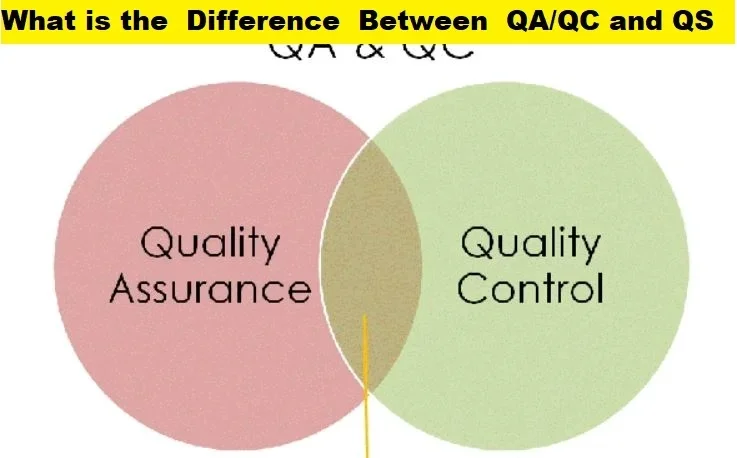Civil engineering has such a large impact on our society that it includes a variety of professions such as structural, geotechnical, environmental, water resources, construction management, and transportation engineers. Quantity surveying is a career that combines engineering, construction, and economics.
What is a Quantity Surveyor
Quantity surveyors (construction cost consultants/cost estimators) can be based in an office or on-site and work for either the client or the contractor. They ensure that the costs of large infrastructure and construction projects are accurately estimated based on initial requirements and project specifications.
A quantity surveyor on the team from start to finish ensures that the project is correctly costed and remains financially viable at all stages of a construction project. Quantity surveyors take a balanced and realistic approach to project funding to ensure that there are no cost overruns and that the purse strings are not too tight. Either extreme has the potential to be disastrous.
If budgets are too tight, project quality may suffer, and if spending is in free fall, funds may run out before the project is completed.
What is the Difference Between QA/QC
Quality assurance is abbreviated as QA, and quality control is abbreviated as QC. Quality assurance/quality control is the combination of quality assurance, the process or set of processes used to measure and assure the quality of a product, and quality control, which ensures products and services meet consumer expectations.
Quality assurance is process-oriented and emphasizes defect prevention, whereas quality control is product-oriented and emphasizes defect identification.
Almost all reputable construction companies now have separate QA/QC departments. In terms of quality assurance, it is critical to provide clients with a method statement, work procedures, checklists, Inspection & test plan, Project quality plan, and a variety of other documents to ensure that the excellent quality meets their expectations.
Duties and Responsibilities of QA/QC Engineers in the Construction Industry
- Accountable for the quality and quantity of all activities, and exact knowledge of all aspects of engineering construction relating to Civil, Architectural, and Structural disciplines interfacing the multidisciplinary processes.
- Responsible for the entire project’s QA/QC documents, including certificates, calibration, test results, inspection requests, non-compliance reports and site instruction/observations, permanent materials delivered, and other critical QA/QC documents.
- Develop and establish all standards for inspecting and testing all procedures, supervising all testing methods, and maintaining high-quality standards for all processes.
- Examine the quality of all materials on-site, ensure compliance with all project specifications and quality, and work with the department on all material procurement and quality materials.
- Oversee the effective implementation of all test and inspection schedules, ensure adherence to all procedures, and collaborate with various teams to perform process quality audits.
- Assist employees in understanding all quality standards, ensuring compliance with all quality manuals and procedures, and collaborating with contractors and suppliers to keep all systems in good working order.
- Manage the lifting of all types of equipment, the efficient storage of all hazardous materials, and the performance of quality audits on a regular basis.
- Maintain an efficient system, documented all project activities, and analyze all processes to ensure that all work meets quality standards.
- Manage all work methods, keep up to date on quality assurance standards, ensure continuous application of all quality assurance processes, and recommend corrective actions for all operations.
- Based on the project specifications, create a method statement for the activity that includes risk assessment, job safety, environmental analysis, and an Inspection Test Plan and Checklist.
- Assist the Technical Engineer in submitting material submittals to the Consultant.
- Coordinate inspection with the Consultant’s representative and the Site In-Charge.
What Is Quality Control in Construction
It is critical to understand the significance of quality control in construction and what it entails. After all, quality construction isn’t just limited to construction firms. It includes their suppliers and other stakeholders in the construction supply chain. It entails inspecting the work of construction contractors, suppliers, and subcontractors, as well as importing machinery, materials, and equipment for use on-site.
Quality assurance and quality compliance are the two broad categories of construction quality control. Quality assurance focuses on the product or service’s quality, whereas quality compliance construction refers to meeting current legal or regulatory requirements.
What Are Common Quality Control Procedures in Construction
When it comes to construction jobs, there is simply no room for error. Every piece of equipment used must be checked for quality and functionality to ensure that it can perform its function effectively. This is where quality control procedures come in handy.
A construction company’s quality control procedures are the steps they take to ensure the quality of their work. These procedures are critical because they help to improve the building’s quality and reduce risks.
Companies can achieve quality control management in construction by utilizing the following methods:
- The ISO stands for the International Organization for Standardization. ISO 9001 – A set of standards developed by the ISO to guide companies in managing their quality management processes and meeting the needs of customers and other stakeholders.
- Kaizen – Kaizen is a business philosophy and process that focuses on minor, continuous improvements that lead to dramatic changes over time. It is a never-ending process.
- Six Sigma is a set of techniques used to analyze and improve processes. It focuses on removing flaws from any process by identifying, measuring, and eliminating variables that cause variation.
- Construction Quality Control Plan – A document that outlines the steps to be taken during the construction process. It outlines the goals, procedures, timeline, and roles of all parties involved.
What are common construction quality control issues
Construction quality control issues fall into three categories.
1. Construction Quality Issues
The first category is concerned with the building’s or structure’s design. These problems are frequently related to structural engineering and design flaws such as improper layout, poor material selection during construction, and insufficient design.
2. Quality Issues with Construction Materials
The second category is concerned with building materials and processes. Poor material selection, poor quality control during production, and improper component assembly are all examples.
Some of the issues with construction materials are as follows:
- The excessive consumption and waste generation of these materials during the manufacturing process.
- Low-quality materials result from a lack of quality control in their manufacturing process.
- The lack of supply chain transparency, including subcontractor mismanagement and supplier/vendor failures.
- Subpar materials do not comply with local or international building product regulations or standards.
3. Construction Industry Poor Workmanship
Poor workmanship has been an issue in the construction industry since its inception, and these issues should never be overlooked. Workmanship negligence and a lack of effort put into quality management in construction can result in costly defects such as corrosion, moulding, and plumbing issues, as well as injuries, death, and structural damage to the building or site.



